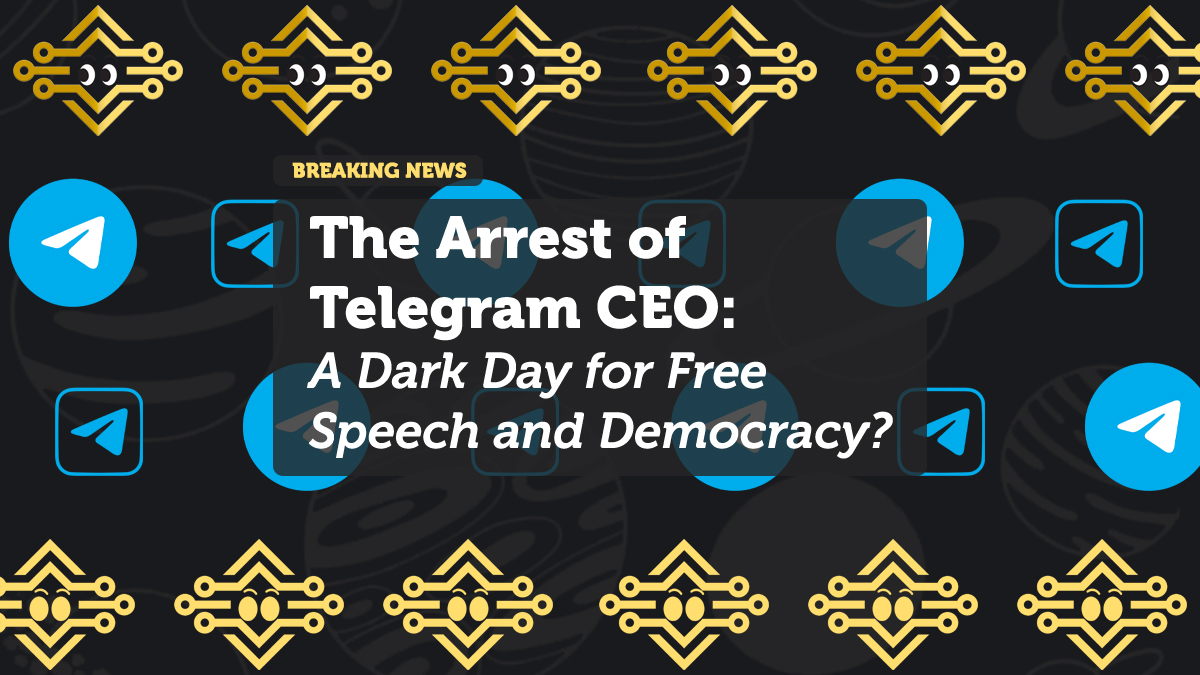
The Arrest of Telegram CEO: A Dark Day for Free Speech and Democracy?
In a move that has sent shockwaves through the tech and free speech communities, Pavel Durov, the billionaire CEO and founder of Telegram, was arrested at Paris-Le Bourget Airport on Saturday night. This unexpected development has sparked widespread concern over the implications for free speech and the future of secure communication.
The Arrest: A Chilling Development
Durov, a Franco-Russian national who now resides in Dubai, was apprehended upon landing in Paris from Baku, Azerbaijan. The arrest, carried out by French authorities, is part of an ongoing investigation into allegations that Telegram has failed to curb criminal activities on its platform. The charges are serious, ranging from fraud and drug trafficking to cyberbullying and organized crime. French officials, speaking anonymously, have voiced their frustration, claiming that Telegram’s lack of moderation has allowed these activities to flourish unchecked.
A Global Beacon for Free Speech Under Siege
Telegram, with its 950 million active users, has long been a platform that champions privacy, freedom, and the protection of speech. The app’s end-to-end encryption and lack of government interference have made it a haven for those seeking refuge from censorship. This arrest, however, raises unsettling questions about the lengths to which governments might go to control and monitor the flow of information.
Critics argue that Durov’s arrest is not just about Telegram’s alleged failure to moderate content but rather an attack on a platform that has steadfastly refused to bow to governmental pressure. Telegram has become a vital tool for activists, journalists, and everyday citizens who value their privacy and freedom of expression. It is one of the few places where Russians can access uncensored information about the ongoing conflict in Ukraine, making it a thorn in the side of regimes that thrive on information control.
A Dangerous Precedent?
The arrest has drawn sharp criticism from various quarters. The Russian embassy in France has demanded consular access to Durov, accusing French authorities of refusing to cooperate. This diplomatic tension only adds to the complexity of the situation, with many fearing that this could set a dangerous precedent for how other governments might handle tech leaders who resist state interference.
In a world where governments increasingly demand control over digital communication, Durov’s arrest could be seen as a warning to other tech innovators. It raises the specter of a future where platforms that prioritize user privacy over government demands may find themselves in the crosshairs.
The Battle for Digital Independence
Pavel Durov’s story is one of resilience in the face of state power. He left Russia in 2014 after refusing to hand over the data of Ukrainian activists to the Kremlin, a decision that cost him his previous company, VKontakte. Since then, he has positioned Telegram as a neutral platform, one that does not engage in geopolitics but rather provides a space where users can communicate freely and securely.
But with this arrest, the neutrality and independence of such platforms are under threat. As governments around the world grapple with the power of digital communication, the case of Pavel Durov could become a pivotal moment in the ongoing battle for the future of the internet.
What’s Next?
Durov’s upcoming court appearance will likely be a flashpoint in the debate over digital freedom. Already, high-profile figures like Elon Musk and Robert F. Kennedy Jr. have voiced their support for Durov, framing his arrest as a critical moment in the fight to protect free speech.
As this story unfolds, it serves as a stark reminder of the fragile nature of our digital rights. The arrest of Pavel Durov could mark the beginning of a new era, one where the fight for control over information becomes the central battleground in the struggle for democracy.















